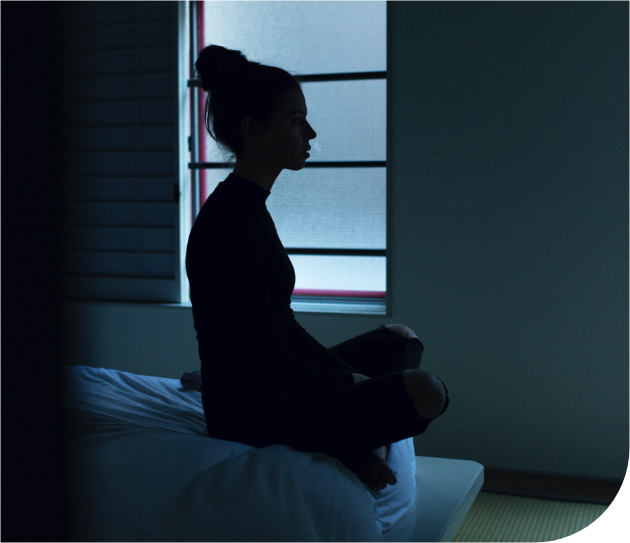Sleep & Airway Health
Better sleep can come from
better breathing.
If you struggle from constant fatigue and restless sleep, or even from chronic headaches and migraines, breathing may be at the root of the issue. Sleep and breathing impacts not only fatigue, but also your entire overall health. Through sleep screenings, we can help you put the pieces together and find rest and relief.
Signs of a Sleep-Related Breathing Disorder
Fatigue
Insomnia
Inability to stay asleep
Chronic headaches and migraines
Poor memory
Snoring
Teeth grinding
Lack of concentration
What is a sleep-related
breathing disorder?
Sleep-related breathing disorders comprise multiple diagnoses that involve difficulty breathing during sleep. These include obstructive sleep apnea, snoring, and upper airway resistance syndrome. These are caused by anatomical airway collapse and altered respiratory control mechanisms. Sleep, or lack thereof, has been linked to most chronic health issues (cardiovascular disease, diabetes, anxiety, depression, fertility/reproductive issues, chronic pain, obesity, Alzheimer's, and early death, to name a few).
Why? This happens from decreases in oxygen to our brain and body repeatedly, for three seconds or more, over and over again, night after night. In children, undiagnosed and/or untreated sleep related breathing disorders can be associated with cardiovascular problems and impaired growth, as well as learning and behavioral problems.
What happens at a
sleep & airway consultation?

During your full-screening sleep consultation, we’ll ask you questions such as:
How is your sleep quality? Are you having trouble falling asleep? Do you have insomnia? Do you wake multiple times a night to use the restroom?
Once we’ve assessed your comprehensive health history and issues and symptoms you’ve been having, we’ll take a 3D scan of your head and neck (CBCT). We’ll take your measurements and digital impressions of your mouth to find out why you, individually, are having an issue.
How do we treat the issue with sleep therapy?
Sometimes it’s as simple as strengthening the oral muscles through myofunctional therapy. Sometimes we need to do a tongue-tie or lip-tie release procedure. Sometimes we need to make more space (expansion) in the upper jaw. Sometimes we recommend that you see a sleep physician. Sometimes we do nothing, because that’s what you wish for. Our role is to support you in your health decisions.
Find rest and relief with a sleep screening and sleep therapy.
